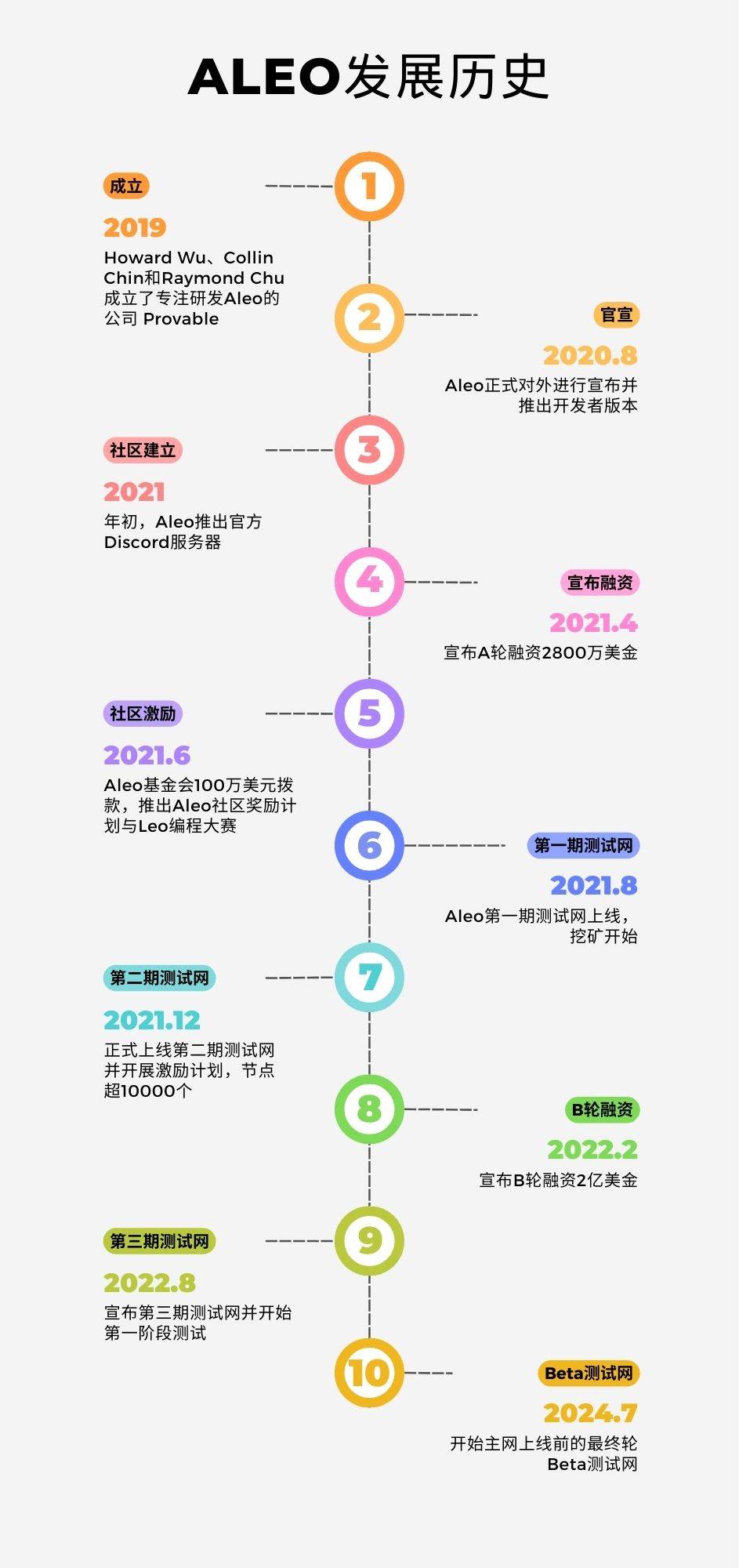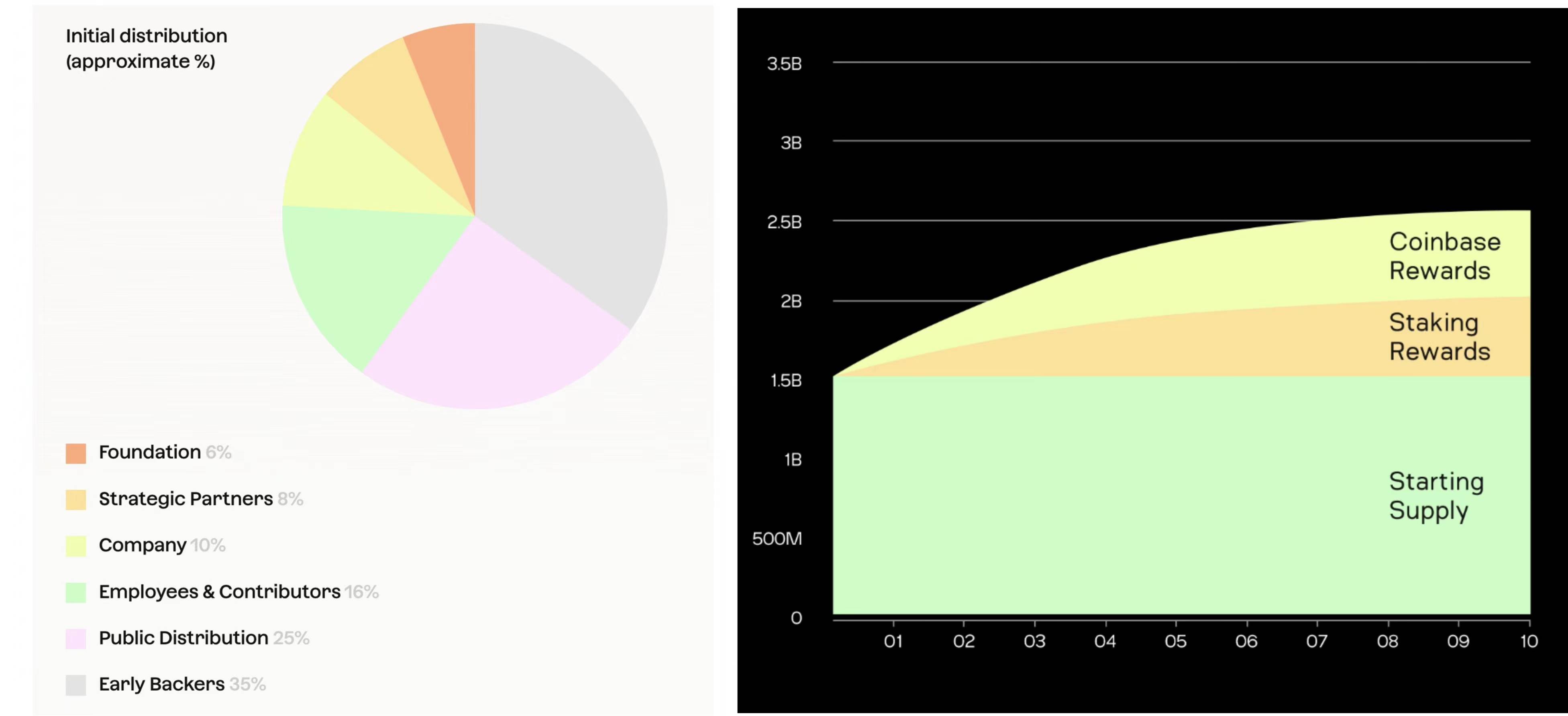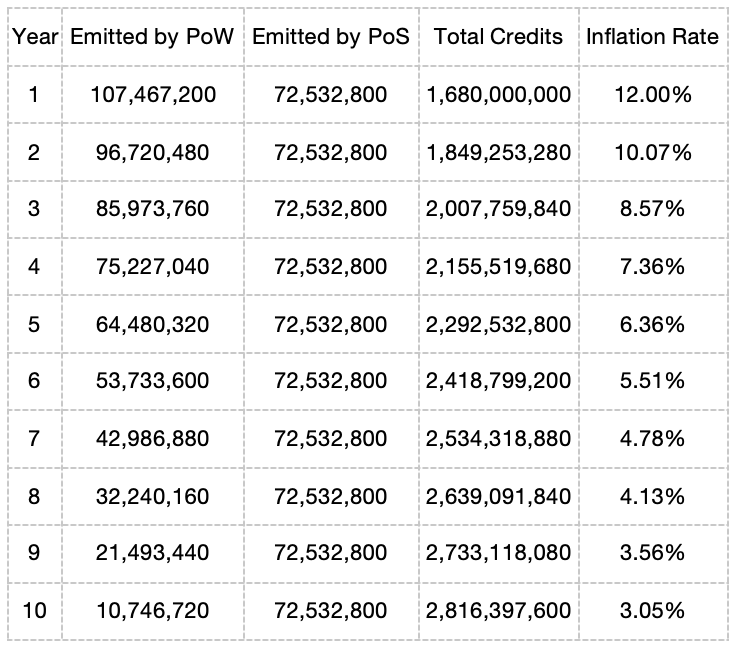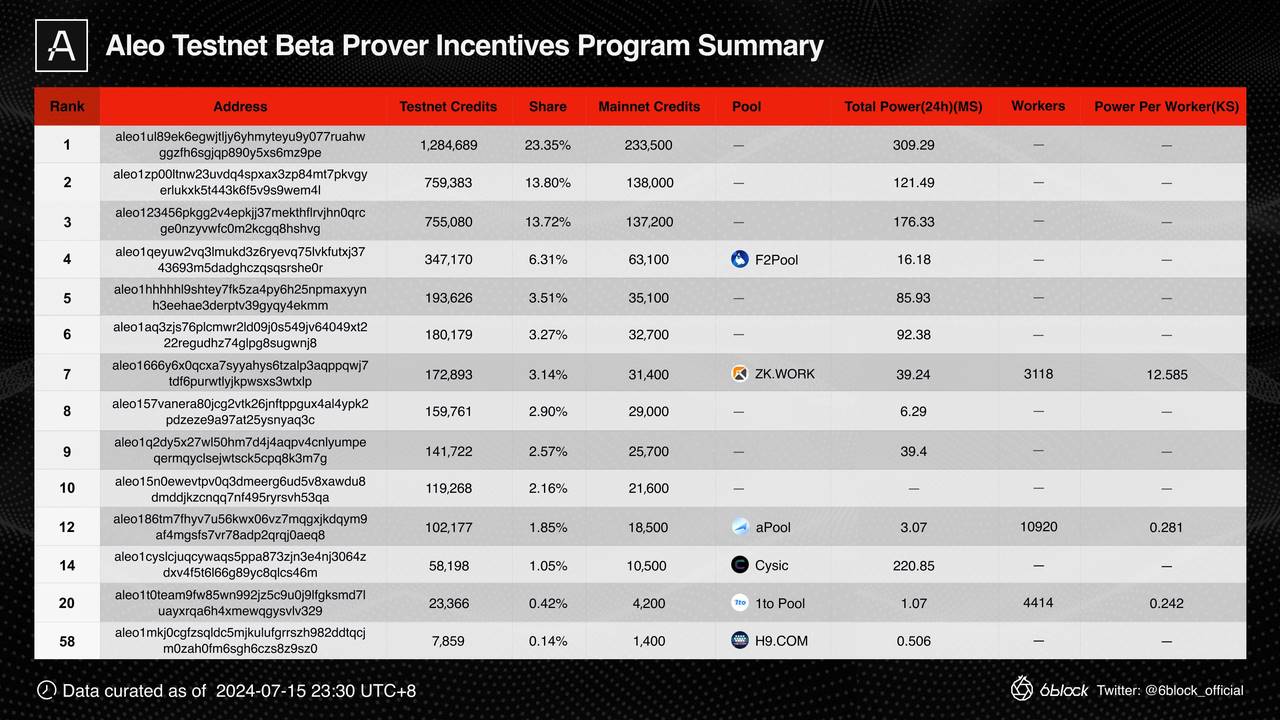Aleo is committed to providing highly privacy-protecting smart contracts and decentralized applications.
1. Project Introduction and History
Aleo is an L1 blockchain focused on privacy using zero-knowledge proofs. The project is dedicated to providing highly privacy-protecting smart contracts and decentralized applications. Zero-knowledge proof cryptography allows parties on a decentralized network to prove knowledge of certain information without revealing the underlying facts. By using zero-knowledge proofs, Aleo supports applications to update the blockchain ledger without sharing personal data, while nodes can verify the validity and soundness of privacy data without revealing the original data. This achieves off-chain zero-knowledge proof generation and on-chain efficient verification of zero-knowledge proofs (transaction simplicity).
The Aleo team consists of world-class cryptographers, engineers, designers, and operations experts from well-known companies such as Google, Amazon, Meta, as well as research universities such as the University of California, Berkeley, New York University, and Cornell University. The core development team is registered under a company called Provable, co-founded by Howard Wu, Collin Chin, and Raymond Chu, all alumni of the University of California, Berkeley.
Howard Wu, co-founder and CEO of Provable, has made outstanding contributions in the field of zero-knowledge proofs and elliptic curve cryptography, including Zexe and DIZK, which have been adopted by protocols such as Ethereum and Zcash. He graduated from the University of California, Berkeley, with a research background in cryptography, computer security, and verifiable computation, and has also worked as a software engineer at Google.
Collin Chin and Raymond Chu, also co-founders of Provable, both graduated from the University of California, Berkeley. Collin is mainly responsible for the development of Aleo's programming language Leo and also serves as the Chief Operating Officer of Provable. Raymond has contributed to the development of validator node operation software such as snarkVM and snarkOS within the team.
Aleo's current CEO is Alex Pruden, a graduate of the United States Military Academy at West Point and a former officer in the US Army Infantry and Special Operations Forces. He had exposure to the blockchain field during his tenure/internship at Coinbase and GGV Capital from 2017 to 2018, and after graduating from Stanford MBA in 2019, he worked at a16z, indirectly leading a16z's Series A lead investment in Aleo.
Aleo's CFO, Michael Beller, graduated from Cornell University and has continuous entrepreneurial experience in asset management startups. He is a senior team advisor with extensive experience in the traditional finance sector.

2. Technical Analysis
The main components of Aleo include:
• Leo Language: Aleo provides a programming language called Leo, designed specifically for privacy protection. The Aleo language enables developers to create privacy-supporting smart contracts and achieve data integrity while protecting user data.
• snarkVM and snarkOS: snarkVM allows off-chain computation and on-chain verification of computation results, thereby improving efficiency. snarkOS ensures the security of data and computation, and allows permissionless functionality execution.
• zkCloud: Provides a secure, private off-chain computing environment that supports programming interactions between users, organizations, and DAOs.
Aleo also provides an Integrated Development Environment (IDE) and a Software Development Kit (SDK) to support developers in quickly writing and deploying applications. Additionally, developers can deploy applications in Aleo's program registry without relying on third parties, reducing platform risk. Furthermore, Aleo allows developers to create applications not limited by gas, making it particularly suitable for applications requiring long-term operation such as machine learning.
2.1 Consensus Architecture
Aleo's proprietary consensus algorithm is called AleoBFT, which combines mining and proof of stake (PoS), where validators follow PoS and zk-provers follow proof of work (PoW). Aleo's PoW is generated randomly every hour in the Aleo network, and miners need to try different nonces as inputs to the circuit within that hour, calculate all variables (witnesses) in the circuit, and solve the Merkle root of the witnesses to determine if it meets the mining difficulty requirements.
The proof of stake consensus model is based on DiemBFT, which requires multi-round computation for consensus formation. The leader first proposes a block, then validators vote to select the next round's leader. Once the required number of votes is reached, the next round's leader will create a certificate and include it in the next block proposal. Stakeholders contribute to consensus and block production, but do not directly participate in the ZK proof generation process, which is undertaken by ZK verifiers.
2.2 Consensus Process
At the protocol level, provers and verifiers are responsible for generating computation results (solution) and block production and aggregation of solutions. The specific process is as follows:
Provers calculate puzzles to build solutions and broadcast them to the network.
Verifiers aggregate transactions and solutions into the next new block, ensuring that the number of solutions does not exceed the consensus limit (MAX_SOLUTIONS).
The legitimacy of solutions is verified by checking that their epochhash matches the latestepochhash maintained by verifiers, that the prooftarget calculated by provers matches the latestprooftarget maintained by verifiers, and that the number of solutions in the block is less than the consensus limit.
Provers providing valid solutions can receive consensus rewards.
3. Ecosystem
Aleo's current ecosystem projects mainly consist of DeFi applications combining zero-knowledge proofs (ZeFi) and infrastructure development applications. The ZeFi track projects include Privx Exchange, Arcane Finance, AlphaSwap, and Staking.xyz.
Privx Exchange, Arcane Finance, and AlphaSwap are all privacy-protecting trading platforms. Privx adopts an innovative Clob (Central Limit Order Book) combined with on-chain smart contracts for order matching to simulate a user experience similar to traditional exchanges, while Arcane Finance and AlphaSwap implement DEX based on the common AMM model.
Staking.xyz, as Aleo's official staking portal, provides users with a dashboard to manage and monitor their staked assets, and users can regularly receive updates and detailed reports on validator performance.
Infrastructure development applications include Obscura, Izar Bridge, and two wallet applications, Puzzle Wallet and Avail Wallet.
• Obscura is a platform dedicated to simplifying the development of privacy-oriented applications. By providing RPC endpoints, APIs, and SDKs, it simplifies the deployment of applications on privacy blockchains for developers. The infrastructure provided by Obscura includes Aleo RPC API and Mina's Graphql API.
• IZAR is a privacy-protecting cross-chain interoperability protocol between Ethereum and Aleo. It aims to create a more secure and privacy-focused cross-chain protocol and project governance model by introducing more validators for cross-chain, based on zkSnark multi-signature design and the future expected addition of a Timelock mechanism.
• Puzzle Wallet and Avail Wallet are both wallet applications that support Aleo. Puzzle's primary client mode is the Chrome Extension browser plugin, while Avail supports mobile and desktop clients.
4. Participants in the Network and Network Rewards (Miner Incentive Analysis)
Aleo's network participants consist of three different roles: stakers, provers, and verifiers.
Stakers are participants who lock credits to support the security of the Aleo network. Similar to stakers in other decentralized networks, they delegate a portion of their Aleo credits to validators to assist in consensus validation and receive staking rewards. The minimum staking threshold to receive rewards is 1 Aleo credit, but the minimum threshold to be eligible for staking rewards is 10 Aleo credits.
Provers (ZK miners) are specific zero-knowledge infrastructure participants in the Aleo network. They support the Aleo network by participating in proof-of-work consensus (PoW) by solving the Coinbase puzzle. The more efficient and effective the provers are in generating solutions to the Aleo Coinbase puzzle, the greater their chance of receiving Aleo Coinbase rewards (credits). Multiple provers can receive a proportionate share of the rewards for submitting valid puzzle solutions for the same Coinbase puzzle. Provers also provide 1/3 of the Coinbase solution rewards to verifiers, incentivizing their participation and reward acquisition.
Verifiers are infrastructure service providers in the Aleo network. They ensure the network's security by participating in the AleoBFT consensus mechanism, following the proof-of-stake (PoS) consensus. Verifiers validate and confirm transaction blocks, achieve consensus according to the consensus protocol, and include proofs from provers when creating blocks, while also receiving verification rewards. To become a verifier, one must have 10M Aleo credits and use snarkOS software to run a verifier node.
4.1 Aleo Credit Allocation
• The initial supply at issuance is 1.5 billion Aleo credits. The distribution is as follows: early supporters (35%), public distribution (25%), employees and contributors (16%), company (10%), strategic partners (8%), and foundation (6%).
• After the mainnet launch, the Aleo network will reward Aleo credits to ZK provers and verifiers. The Coinbase rewards for provers and verifiers will linearly decrease over approximately 10 years.
• Verifiers can permanently receive a fixed block reward (currently set at 23 credits per block).
Circulating Supply
• The total circulating supply of Aleo credits will increase to 2.6 billion over 10 years, doubling in approximately 21 years due to reward issuance.
Inflation
• The credit inflation rate decreases over time, from around 12% in the first year to 2% in the 10th year, approaching 0% over time.

Chart of the initial distribution of Aleo credits and the expected inflation over 10 years
4.2 PoS and PoW Reward Relationship
In the latest Beta version of the testnet, the Aleo team adjusted the reward ratio between proof of stake (PoS) and proof of work (PoW) protocols. The block rewards for provers solving puzzles that are distributed to verifiers have been adjusted from 1/2 to 1/3, with provers receiving 2/3 of the block rewards for solving puzzles. Initially after the mainnet launch, PoW will play a significant role in the Aleo network, but over time, the block rewards released by solving puzzles will gradually decrease, while the constant block reward weight given to verifiers will increase (maintaining 23 Aleo credits per block). The following chart shows the quantity and proportion of Aleo credits released through PoS and PoW consensus over the next 10 years:

This is our calculation of the annual growth and corresponding inflation rate of Aleo credits over 10 years after the initial issuance based on official data:

In the long run, the distribution of Aleo credits will gradually shift from being more favorable to provers in the early stages to being more favorable to stakers and verifiers. After 10 years, there will no longer be credits released through PoW consensus, and network rewards will follow PoS consensus release.
4.3 Beta Testnet Data
The Beta testnet is the final incentive testnet before the mainnet launch. The main goal of this testnet is to verify the new puzzle mechanism through the Prover Incentive Program, with a duration from July 1st to July 15th, and it has now ended.
The Aleo Foundation provided 1 million mainnet credits to provers. Each prover will receive mainnet credits in proportion to the testnet credits earned during the incentive period. The minimum reward is 1,000 mainnet credits; any prover receiving less than this amount will not be eligible for rewards.
The following is a summary of the top 10 addresses and their corresponding pool data for Aleo credits earned during the Beta testnet:

免责声明:本文章仅代表作者个人观点,不代表本平台的立场和观点。本文章仅供信息分享,不构成对任何人的任何投资建议。用户与作者之间的任何争议,与本平台无关。如网页中刊载的文章或图片涉及侵权,请提供相关的权利证明和身份证明发送邮件到support@aicoin.com,本平台相关工作人员将会进行核查。



